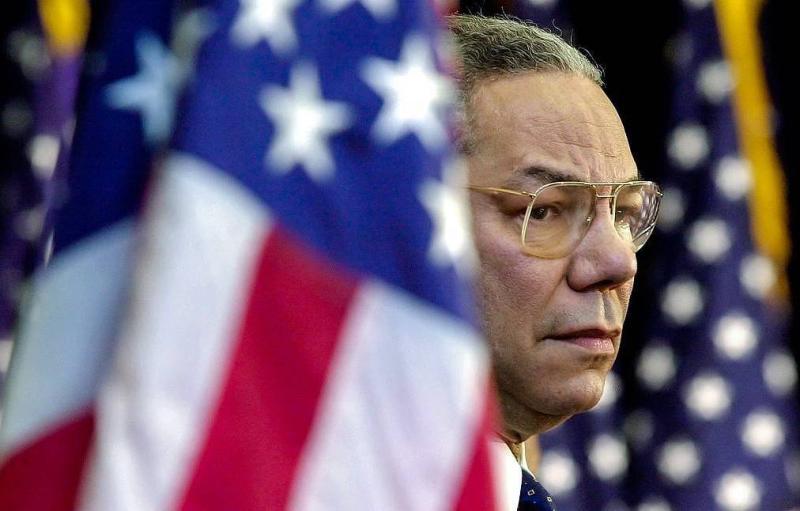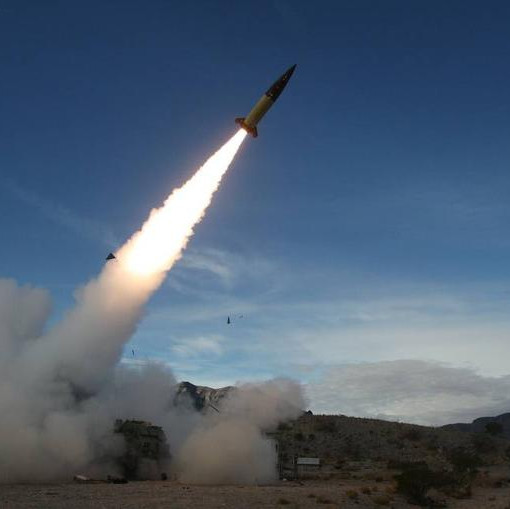
© AP Photo/Kenneth Lambert/TASS
On February 5, 2003 twenty years ago US Secretary of State Colin Powell made a report to the UN Security Council on Iraqi weapons of mass destruction (WMD). He came to the session with a test tube allegedly containing a dangerous substance sample. After that, the United States and Britain invaded Iraq without UN sanction, but failed to find anything he talked about for 76 minutes. Powell himself did not live to see the "anniversary". He died in October 2021 aged 85 of COVID-19. But first things first.
In early 21st century, US President George W. Bush and British Prime Minister Tony Blair had a bellicose attitude towards Baghdad and talked about the WMD Saddam Hussein allegedly had. In September 2002, London presented a report by David Kelly and his team, claiming that Iraq did have WMD and mobile combat systems.
And so, on February 5, 2003, Colin Powell suggested that the UN Security Council discuss the Iraqi WMD. He underpinned his words with a test tube having some kind of powder inside, allegedly anthrax spores. If indeed the case, how did Powell manage to bring such a dangerous substance into a UN building, exposing all those present there to mortal danger? After all, the building had several hard lines of control. Powell later clarified that the test tube only symbolized the substance amount capable of causing major harm. But it was a lot later. In hot pursuit, Powell did not refute anything, apparently hopeful to impress both the UN Security Council and the world community as a whole.
The tube was later said to have contained some harmless powder (which one: dental, flour, talcum or anything else? And who in the world invented the entire performance?) However, Washington and London hardly cared about this anymore – the test tube sort of triggered their invasion of Iraq in March 2003. And a year later, Colin Powell repented. "My report in February 2003 was based on verified information provided to me by the CIA. But it turned out that the sourcing was inaccurate and wrong and, in some cases, deliberately misleading. And for that, I am - I'm disappointed. And I regret it," he said. Admittedly, this features an exceptional case of the American establishment showing flashes of conscience. But never mind. It’s all about the fact that the test tube story has become clear proof of American politics’ hypocrisy. It has been especially noticeable today, as US biolabs function all across the globe, including the post-Soviet space.
A symbol of 21st-century politics based on might and dictate was Operation Iraqi Freedom (OIF–2003), and the United States was satisfied with its outcome. Actually, this is the very foundation of Pax Americana – the only world order Washington is ready to embrace. By the way, apart from Iraq, the Americans used economic sanctions and regime demonization in Syria, Libya, and other regions. And now these methods are being used in the Ukrainian conflict, with everlasting pressure on everyone and everything, including allies.
Just a reminder: the 8-year-long war in Iraq destroyed its economy and killed about a million civilians. Back then, the only countries unconditionally supporting the invasion of Iraq by Washington and London were Australia and Poland, contrary to claims by President W. Bush who referred to broad international coalition comprising 49 states. Among those taking an actual part in the war were the American and British troops alone. A surprising thing is that the leading European states like Germany, France and Italy were not opposed to the invasion, though headed by sensible politicians: Chancellor Gerhard Schroeder, President Jacques Chirac, and Prime Minister Silvio Berlusconi.
As for the Russian stance, the ostensibly anti-terrorist war in Iraq found support with neither its elites nor general public. Thus, the country’s foreign policy review dated March 27, 2007 dubbed the American campaign in Iraq a mere "military adventure". At the same time, seeking to avoid an open confrontation with the US or the UK, the Russian leadership took a pragmatic position in its official reaction and abstained from explicitly condemning them for OIF–2003.
Notably, the Iraqi war results did cast a shadow on both George W. Bush and Tony Blair, but it was Colin Powell who became the key scapegoat for merely voicing Washington’s official position. Having left the post, the Secretary of State preferred to quit big politics altogether, despite all the tempting offers he received. This proves he was truly conscientious and hard-pressed by the test tube shame. This view is shared by many politicians and the military, including Russia’s, who met Powell in person.
For example, according to Russian Deputy Foreign Minister Sergei Ryabkov, Colin Powell was way more professional than those running the United States today, and more decent, because he eventually admitted to have been forced by orders coming from above. In this regard, Ryabkov said: "Powell’s UN stunt has long become the epitome of hypocrisy and the conviction of the US ruling elite in its own entitlement and its unchallenged right to arrogantly teach the rest of the world, using force against an obviously weaker opponent in order to preserve its own global hegemony."
To sum up let’s note that the test tube Colin Powell presented to the UN Security Council was the most expensive one in the history of mankind. Former US President Donald Trump branded it "the worst single mistake made in the history of our country," worth $7 trillion. Having become a perfect pretext to launch the Iraqi campaign, the Powell test tube cost a lot to the world, indeed. Destroyed Iraqi statehood made terrorist groups catch their second wind throughout the planet and later form the backbone of ISIS (banned in Russia).
The incident of February 5, 2003 has undoubtedly become a huge reputational and image loss for the USA, as much as for former Secretary of State Colin Powell himself, who said it was an ugly scar upon his good name.









